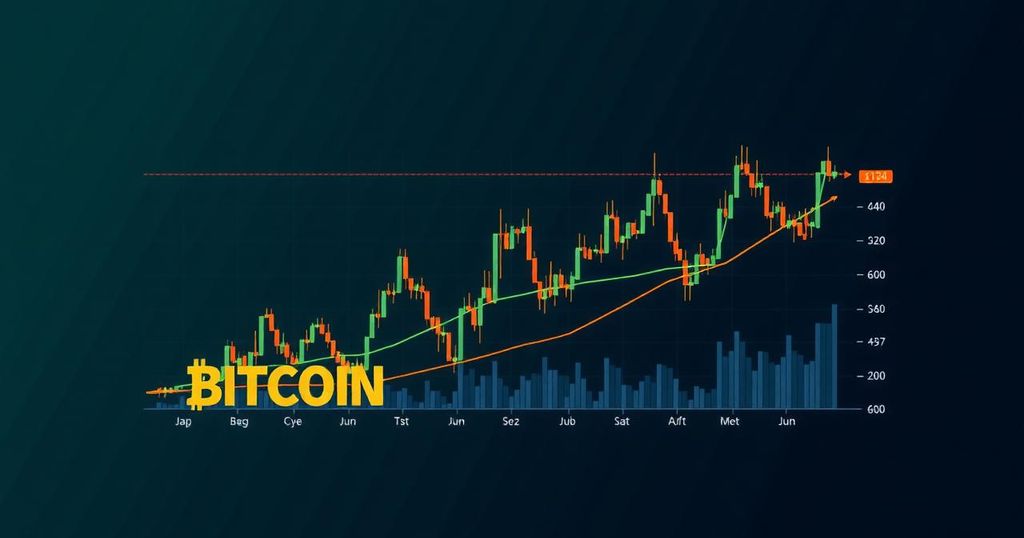HODLers, Not ETFs: The True Causes Behind Bitcoin Price Declines According to Analyst Eric Balchunas
Summary
Bloomberg analyst Eric Balchunas has countered the theory that institutional players like BlackRock are responsible for recent Bitcoin price drops, asserting instead that native Bitcoin holders, or “HODLers,” are the main culprits behind the market declines. He emphasizes that Bitcoin ETFs, particularly those from BlackRock, have aided in market stabilization, challenging the prevalent belief in manipulation by traditional finance entities. This assertion is supported by significant sell-offs reported by Bitcoin miners and continues to highlight a misunderstanding about the role of ETFs in the cryptocurrency landscape.
In the ongoing discourse surrounding the fluctuations in Bitcoin’s price, Bloomberg analyst Eric Balchunas has dismissed a prominent theory attributing these declines to institutional players such as BlackRock, the world’s largest asset manager. Instead, Balchunas identifies the primary contributors to these price drops as individual Bitcoin holders, commonly referred to as “HODLers,” who are choosing to liquidate their holdings. Traditionally, some analysts have pointed fingers at the involvement of traditional finance entities, particularly BlackRock, suggesting that they may engage in practices such as issuing IOUs via Coinbase, a leading cryptocurrency exchange, to manipulate Bitcoin’s market price. The notion suggested that through its exchange-traded funds (ETFs), BlackRock could potentially be shorting Bitcoin while maintaining a disparity in actual Bitcoin holdings. This theory gained traction through the assertions of crypto analyst Tyler Durden, who indicated that Coinbase’s significant buying and selling patterns at pivotal price points might suggest an orchestrated effort to influence market prices. Durden even claimed in a deleted social media post that Coinbase was writing IOUs for BlackRock, hypothesizing potential ramifications of a market crash stemming from such practices. Contrary to these assertions, Coinbase’s CEO, Brian Armstrong, has refuted these claims, emphasizing the transparency of the ETF minting process and the rigorous auditing conducted on such transactions. Armstrong reiterated that while Coinbase does cater to institutional clients, such as BlackRock, all operations adhere to strict regulatory frameworks that guard confidentiality. Furthermore, the inherent skepticism around Coinbase’s wrapped Bitcoin (cbBTC) has gained attention, particularly from notable figures like Tron founder Justin Sun, who criticized it as a dubious product lacking proof of legitimate deposits. In the midst of these controversies, Eric Balchunas has taken a firm stance against the notion that traditional financial institutions are responsible for Bitcoin’s instability. In his assessment, Balchunas posits that Bitcoin ETFs have ultimately contributed to stabilizing the market, suggesting that the fear of the HODLers liquidating their investments may be irrational. He argues that relational dynamics within the Bitcoin ecosystem could be misconstrued as manipulative efforts by institutional players. Adding credibility to Balchunas’ viewpoint, fellow analyst Ali Martinez reported that Bitcoin miners had sold over 30,000 BTC within a mere three-day period, suggesting that these native Bitcoin holders, rather than external entities, are inducing selling pressure on Bitcoin’s price. In stark contrast to the detrimental narrative surrounding traditional finance and Bitcoin, Balchunas articulated the advantageous outcomes of Bitcoin ETFs, specifically noting that BlackRock’s ETF launch earlier this year contributed to a surge of Bitcoin to an all-time high of $73,000 in March. The persistent inflow of funds into the ETF has provided liquidity, thus supporting Bitcoin’s price amid turbulent market conditions. Concurrently, Nate Geraci, the President of ETF Store Inc. and Co-founder of ETF Institute, underpinned Balchunas’ perspective by stating, “Anyone perpetuating this stuff doesn’t understand how ETFs work.” As of the latest reports, Bitcoin is hovering around $60,000, with analysts optimistic about potential price supports from anticipated Federal Reserve rate cuts, which historically have been favorable for Bitcoin.
The cryptocurrency market, particularly Bitcoin, has been subject to intense scrutiny and speculation regarding its price movements. Various theories have emerged attributing these fluctuations to the actions of institutional investors, particularly large entities such as BlackRock. In light of recent price drops, a debate has sparked over whether these declines are due to market manipulation from such entities or simply the market behavior of individual Bitcoin holders, known as HODLers. This ongoing discussion has created a narrative that seeks to understand the true influencers behind Bitcoin’s market dynamics and pricing.
In conclusion, the narrative suggesting that institutional investors such as BlackRock are primarily responsible for Bitcoin’s price decreases has been challenged by analyst Eric Balchunas, who identifies HODLers as the true sellers behind market fluctuations. Balchunas argues that the presence of Bitcoin ETFs has stabilized the market, contrary to claims that they exacerbate price volatility. The sell-offs by native Bitcoin holders, combined with incoming liquidity from ETFs, reflect the complex interplay between individual investors and institutional involvement in the cryptocurrency market.
Original Source: cryptonews.com








Post Comment